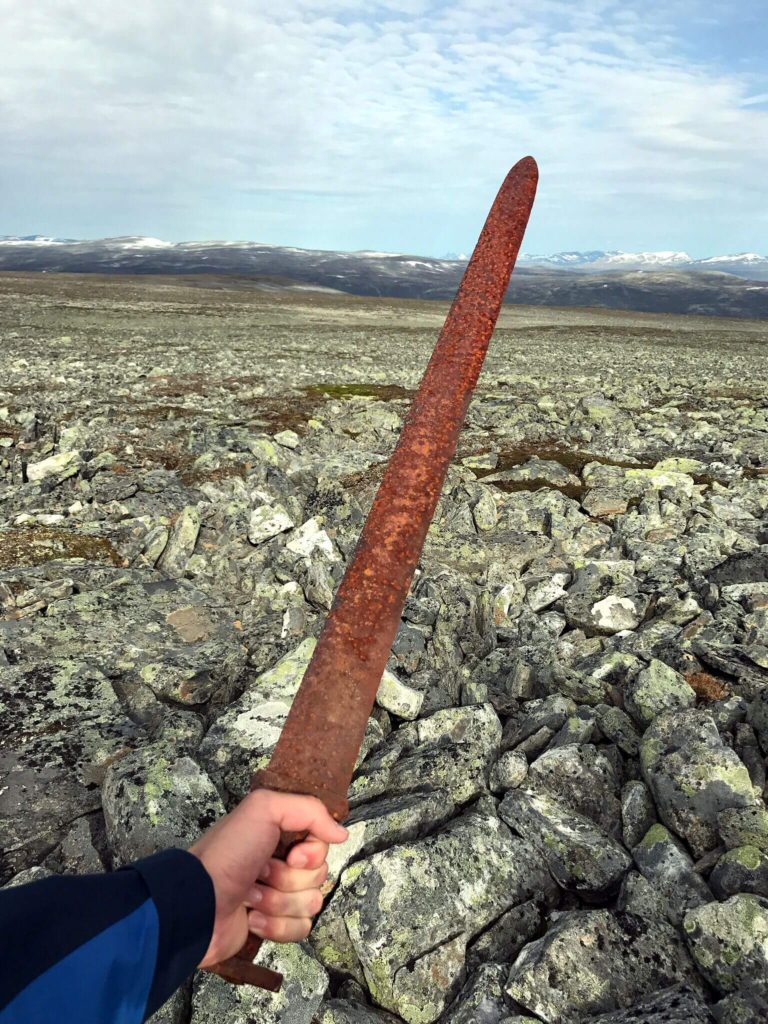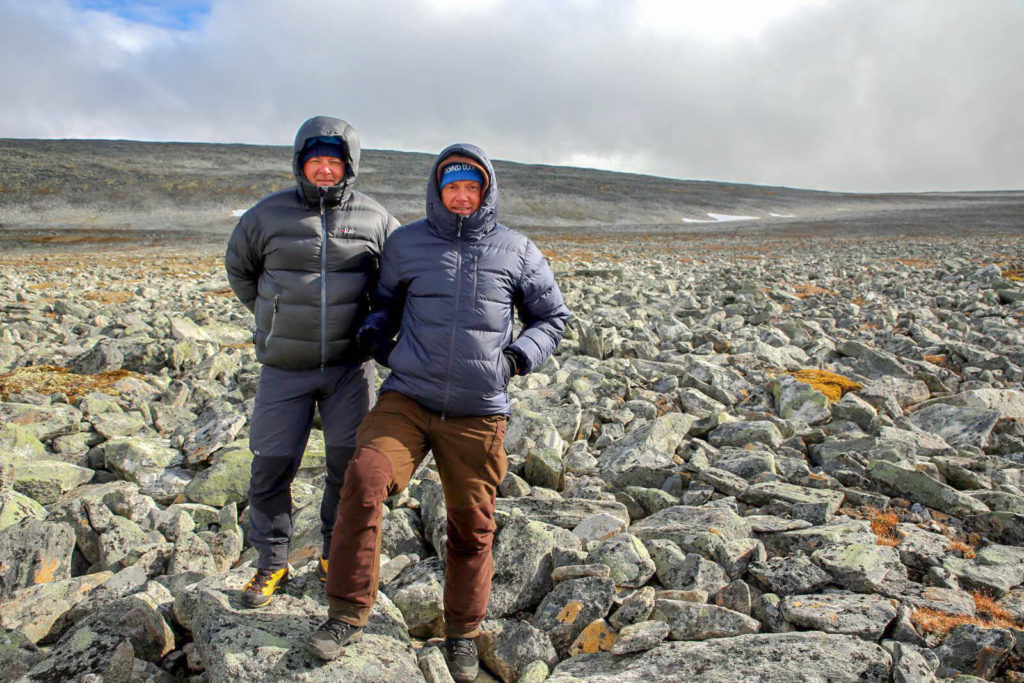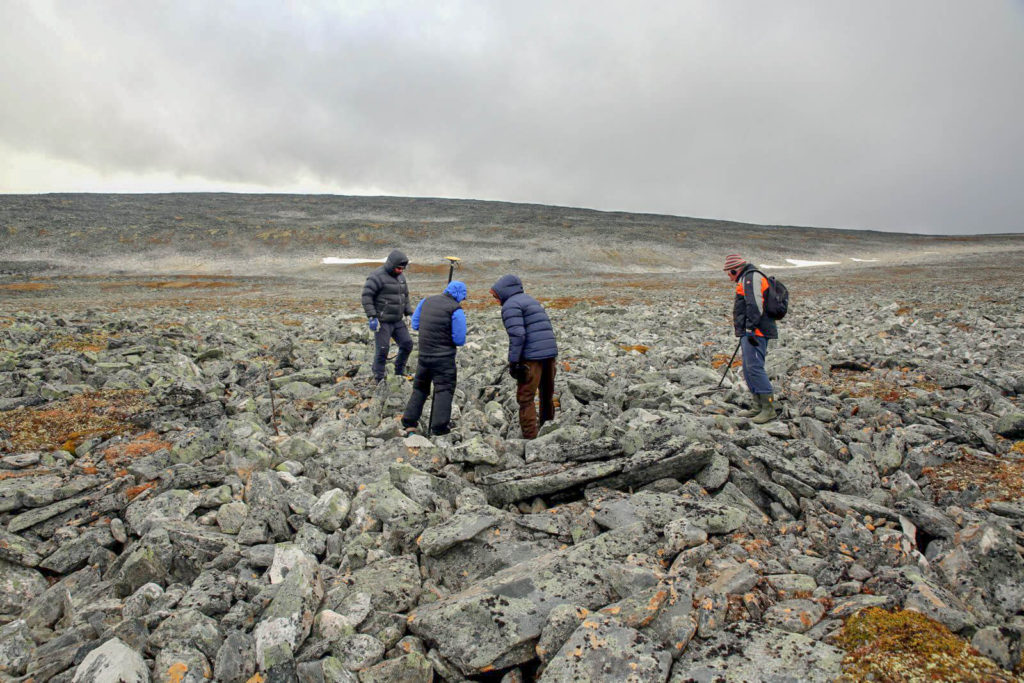It was Friday, September 2, 2017. We received the incredible news of the discovery of a sword at high altitude in our county. A reindeer hunter stumbled upon it. The pictures accompanying the news were just stunning. One of them showed a hunter holding an extremely well preserved Viking sword.

Our minds were racing. The immediate thought was that we had to inspect the find spot as quickly as possible. The question was whether this was an isolated find, or if there could be more artefacts here. After consulting with the Museum of Cultural History and the National Park authorities, two members of the Secrets of the Ice team visited the find spot yesterday. Along came two of the reindeer hunters (including the finder Einar Åmbakk), a local metal detectorist and a local archaeologist. The group set out from a summer farm and reached the finds area after three hours of brisk walking up the mountain in strong wind.
The reindeer hunters had not taken a GPS position for the find. However, we were able to access the exact coordinates through the geographical data stored in the photos. This was very important, as experience shows that it could otherwise have been difficult to relocate the exact find spot in a terrain with few landmarks. Using a GPS, the find spot was quickly re-discovered.

What did we learn from the find spot?
The find spot is in a scree-covered area with traces of permafrost movement, situated at 1640 m above sea level. Einar Åmbakk told us that the sword was lying with the hilt down between the stones. Half of the blade sticking out. Åmbakk had seen the blade and pulled it out. Only then did he understand that he had found a sword.
It seems unlikely that the sword reappeared on the surface due to permafrost movement of stones. There are no scratches or bending from the stones visible. Most likely the sword was still in its original position or had slid somewhat down between the stones.

We surveyed the find spot closely, both visually and using a metal detector. The survey, which covered a distance of up to 20 m from the find spot, did not result in any further finds. The sword is thus an isolated find.
The incredible preservation
It may seem strange that the sword survived on the surface for more than one thousand years. However, to all appearances this is what happened here. Isolated finds of well-preserved iron arrowheads are also known from the high mountains. Some of these artefacts are even older than the sword. The preservation is probably due to a combination of the quality of the iron, the high altitude and the mostly cold conditions. For most of the year, the find spot would have been frozen over and covered in snow.
The sword would most likely have had bone, wood or leather covering the grip. These organic parts are no longer preserved.
Why was the sword lost at high altitude?
So what do we know now? The sword was found partly buried in the scree with the blade sticking out. There are no other finds nearby. There are no indication of a burial or that it is some kind of sacrifice. It also appears unlikely that the sword was simply lost here, i.e. left behind for some reason and not recovered later. What kind of Viking would have left his most precious object behind?

The rough scree-covered find spot is not a place where one would walk if traveling through the area. There is much better terrain for walking not far away. This could suggest that the person who left behind the sword was lost, maybe in a snow blizzard. It seems likely that the sword belonged to a Viking who died on the mountain, perhaps from exposure. However, if that is indeed the case, was he traveling in the high mountains with only his sword? It is a bit of a mystery…
It is a tantalizing thought that if the Viking had died a couple of hundred meters further east, where there are ice patches, we could have had our first Norwegian Ötzi. As it is now, his remains are long gone. Only the sword bears witness to the drama that happened here more than one thousand years ago.
If you are interested in reading more on death in the high mountains, we have a blogpost on this subject here.
